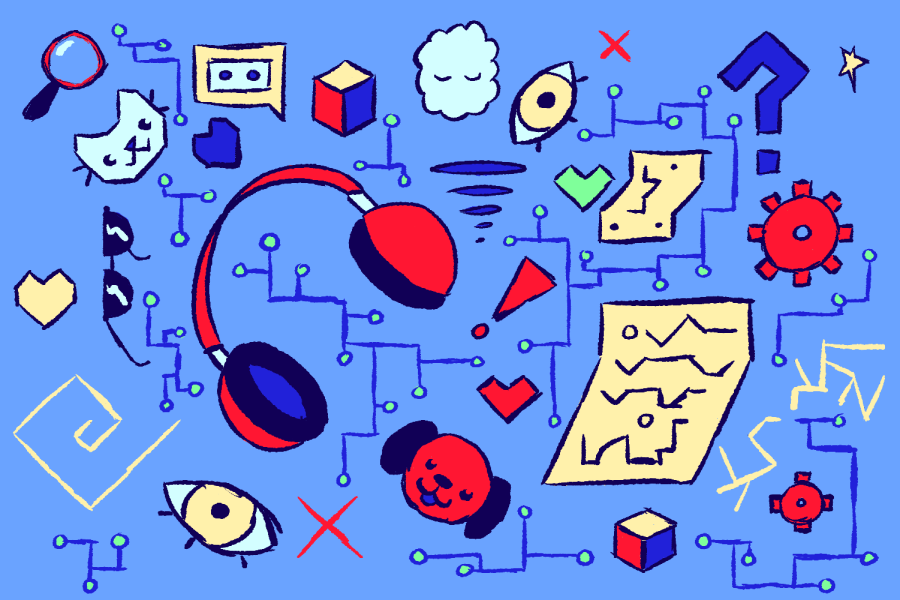Autism: Let’s start the conversation
Cartoonist Isaac Trusty illustrates several patterns and sensory items on a grid. Opinion Columnist Emily Beebe explains that those with autism can struggle with becoming over stimulated and it is not talked about enough.
April 23, 2023
Autism is one of the most misunderstood and stigmatized conditions in modern society. It’s crucial we start talking about autism more in our society. We must recognize that autism is not a disease or a choice.
April is known as World Autism Month. However, we should talk about and recognize autism not just in April, but every month.
Autism affects about 1 in 36 children according to the CDC. Despite this, however, there remains a significant lack of awareness and understanding surrounding this condition. As a result, many children and adults with autism struggle to receive the necessary support, accommodation and recognition they require to thrive.
Autism is a neurological condition that affects social interaction, communication and behavior in unique ways, according to the Autism Research Institute. By acknowledging the diversity of autism and its different forms, we can create a more inclusive and supportive society for those living with this condition.
We need to ensure that all people with autism have access to the resources and support they need to reach their full potential, such as the Disability Resource Center and NIU’s Autism Caregiver Group. This includes providing early intervention services, robust therapeutic interventions and educational programs tailored to the unique needs of individuals with autism.
Bridging the gap between those with autism and the rest of society also requires open dialogue. We must create opportunities for people with autism to share their experiences and perspectives. By sharing their stories, people can help to dispel misconceptions and reduce the stigma surrounding the condition.
Autism plays a big role in my life, personally. I was diagnosed with autism spectrum disorder when I was 3 1/2 years old. Walking on grass barefoot was like walking on broken glass barefoot for me. If there was something bright or colorful on the television, I would stand there and shake because it was too much stimulation.
As a child, I went through a lot of physical therapy and speech therapy and had many different therapists. When I was diagnosed with autism, I liked my routines, and overstimulation was a big challenge for me. The biggest challenge I have now is my emotions occasionally still get the best of me. Now, however, no one really knows that I have autism unless I tell them, so not very many people know.
We need to recognize that autism is part of the diversity of our world. We need to celebrate the unique talents and strengths of individuals with autism, rather than see them as just different. Celebrating individuals with autism means welcoming them as valued members of our community, and not just labeling them as “other.”
We need to create a more inclusive and equitable world, where everyone is valued and supported, regardless of their differences. Let’s work together to reduce the stigma of autism and create a better future for those living with this condition.



